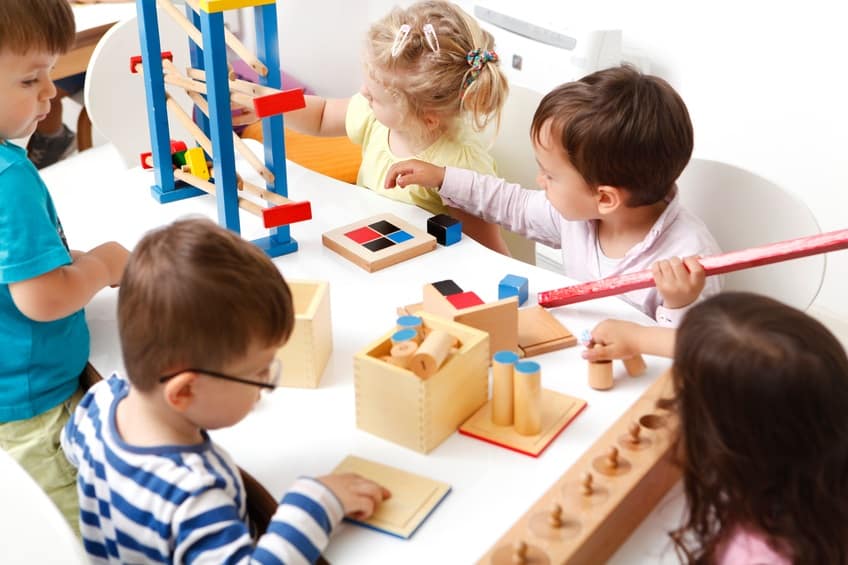Are you finding one of the top school assessment contestants in international educational events, a well-structured schooling system, or good quality higher education? If yes, then the educational system of Finland should be your answer. Hopefully, Mintbook readers are already aware that Finland is considered among the top countries with the finest educational systems. However, if you are new to Mintbook, then you would probably explore the reasons why the Finnish education system is the best in the world. Surely, as our reader, you would try to implement these great attributes of Finland education system in your educational institutes as well.
Finland Education System Ranking on the Global Stage
Finland consistently ranks among the top countries in global education assessments, often being recognized for its student-centric approach and emphasis on holistic learning. According to the Programme for International Student Assessment (PISA), Finland has historically performed exceptionally well in reading, mathematics, and science, though its rankings have fluctuated slightly in recent years. Despite this, Finland remains a model for progressive education, with its system often compared to high-performing countries like Singapore, Canada, and Japan. Unlike test-driven models that prioritize standardized exams, Finland’s ranking success stems from its focus on teacher quality, equal opportunities, and stress-free learning environments. While some recent reports indicate a slight dip in Finland’s ranking due to evolving global education trends, it continues to be a benchmark for innovative and equitable education worldwide.
Why the Finland Education System is the Best
Early Childhood Education
First of all, you don’t need to misunderstand this point. Here, we are not talking about early schooling because usually in Finland, kids join schools at the age of 7. However, it is about early childhood education that could be given to kids by parents and also the nursery kindergartens. Early education in Finnish culture helps the kids to become unique people in society as compared to being the same person with similar kinds of skills.

Moreover, parents who either send their kids to kindergarten or not, try to develop a habit of reading in their kids from childhood. In this regard, the Finnish Social Security Organization, which works for welfare in Finland, also provides three books to newborn parents under the ‘maternity package’. One book is given to the mother, one for the father, and one book is gifted to the baby which he/she could read in upcoming years. Yes, you can also take it as a good step toward the development of early childhood reading habits.
Late Schooling
As compared to other countries schooling starts at the age of 7 in Finland. According to many educationists, early school pressures students a lot about studies and could be harmful to mental health. That’s why Finland educational system prefers to start schooling from the age of 7. However, as we have explained in the above heading that parents also take care of early education, and usually preschools and kindergartens offer meaningful playing activities to develop essential study concepts in kids below 7.
Transformed Role of Teachers
As compared to other developed countries, the people who join teaching are not the students with ordinary grades. Yes, like the other challenging professions, teaching is also tough, especially when it is about the selection. It is true that among several teaching candidates, only 10 % of contenders are selected for the profession of teaching.
On the contrary, if we talk about the role of teachers in schools, then it is also different. Luckily, the teacher-student ratio in Finland is satisfactory, and usually, teachers give lectures for 4–5 hours a day. It is also essential to discuss that teachers spend the remaining hours in planning, meetings, and other study-related tasks. Also, teachers are not restricted to staying at the school after their class hours. In this way, the Finnish education system is providing more peace of mind to the teacher to give better performance.
Less or No Homework
If you conduct a comparison of school homework in developed countries with Finland, you would quickly notice that both elementary and secondary schools do not assign much homework to kids. Even Finnish schools prioritize playing activities like sports, etc., over homework.

Typically, if you are studying at a Finnish school, then it is definite then you would only have to spend 20–30 minutes to complete your homework. After that, you are free to live your life and can explore other things in life. Hopefully, other school systems of the world would also recognize this strategy as an excellent option to make their students more effective in all fields of life.
No Competition, Only Cooperation
If you think what the unique features that make Finland education system one of the best in the world are then you shouldn’t ignore what kind of atmosphere they are creating in the classroom. Yes, it is factual that in Finnish schools, teachers and students don’t make any difference between the topper of the class and a student with poor performance. That’s why students don’t waste their energies to win classroom appreciation competitions.
In actuality, we should appreciate this strategy of Finnish schools because in many cases, these kinds of competitions are making students more worthy in their studies. Still, we are making several students the patients of superiority complex. No doubt, in the race of competition, students just forget their real goals of studies. With this step of ‘no competition’, Finnish schools are also increasing the concept of helping each other and brotherhood with their theory of cooperation. Yes, the education system of Finland prefers collaboration among the students in the classrooms as compared to the competition. This is also a big reason for the success of Finland education system.
Free & Affordable Education
Elementary and Middle School education is entirely free in Finland. Yes, if you are living in Finland legally, then your child can join a school from the age of 7 to 17 for free of cost. Like other developed and underdeveloped countries, education is not a business at all in Finland because state institutions strongly condemn such kind of activities.
However, if you send your kid to a private school, then they would charge a fee from you, but surely, it is also affordable. On the other hand, if we talk about higher education fees, then they are also affordable. Notably, the students from the EU/EEA are not being asked about the tuition fees in Finnish universities. The government of Finland also grants several scholarships for non-EU/EEA students each year, primarily to financially support the PhD students. However, if you are a Bachelor’s or a Master’s degree student, then you also do not need to worry because you will easily find many other scholarship programs like Erasmus Mundus, etc.
Fewer Tests
As most of us have heard about the top scores of Finnish students in international mathematics and other competitions, it is also a reality that Finnish schools don’t conduct too many tests. Even their teachers are not trained to take a standardized test like the other school systems of the world. Yes, as compared to tests, the Finnish schools emphasize learning, and in this regard, teachers are well-trained to deliver correctly structured lessons.
Howbeit, the only authorized test is conducted in the last year of high school, but interestingly, the marks of these mandatory results are also kept private. In this way, the school system of Finland also gives great relief to students about the result announcement. Mintbook also recommends implementing this kind of result relief in India, where only in Telangana alone, near about 20 students committed suicide after the announcement of intermediate results in April 2019. Hopefully, the Indian education sector will consider our suggestion.
Special Children Attend the Same School
Like the other developed countries, special kids don’t attend special schools in Finland. This step doesn’t show honest intentions towards the special and ordinary students, but also gives a powerful message to world school administrations who make a difference among the kids. However, to take care of these 23% of special students, the education sector in Finland also hires additional staff in the form of teachers and nurses.
Equality Amongst Schools
Finns believe in equal opportunities, that’s why their school systems also show the same. There is no difference between education in public and private schools. Surprisingly, kids prefer to go to public schools as compared to private schools, and even the attendance score of public schools is also remarkable. On the contrary, there is no difference between the quality of education in public schools; that’s why there are only a few private schools in Finland. These private schools are also not charging a lot for kids because they are working as government subsidiaries.
Love for Learning
On the same token, Finland is also trying hard to create a passion for learning in its kids. Likewise, students don’t only join universities in Finland to make their careers but can also explore their passion for learning in a particular subject. Yes, universities in Finland offer a variety of subjects from pop culture to politics as elective subjects.
On the contrary, to increase the love of learning in youngsters, Finland is also working hard to build high-quality libraries. Likewise, Central library Oodi is one of the most advanced public libraries in the world, which is located in Helsinki, Finland. Turku City Library is also one of the most worth-visit libraries in Finland.
The Role of Technology in Finland’s Education
Finland has successfully integrated technology into its education system, making learning more interactive and accessible. Schools widely use digital tools such as e-learning platforms, smart classrooms, and AI-driven personalized learning systems to enhance student engagement. Digital libraries and online resources provide students with access to vast amounts of information, promoting independent research and self-paced learning. The Finnish government has also invested in ensuring equal digital access, reducing the digital divide among students from different socio-economic backgrounds. Unlike traditional education systems that often rely heavily on textbooks, Finland encourages the use of multimedia, gamified learning, and virtual simulations to make education more engaging. This seamless blend of technology and pedagogy ensures that students are not just passive learners but active participants in their educational journey.
Finland’s Approach to Teacher Training and Professional Development
One of the biggest reasons behind Finland’s educational success is its rigorous teacher training programs. Becoming a teacher in Finland is highly competitive, with educators required to hold a master’s degree before they can teach in schools. The training emphasizes research-based teaching methods, allowing educators to adapt to evolving classroom needs. Finnish teachers are granted a high level of autonomy, enabling them to tailor lessons according to their students’ abilities instead of following rigid standardized curricula. Continuous professional development is also encouraged, with teachers regularly attending training programs and collaborative workshops. Unlike many countries where teachers face excessive administrative work and limited creative freedom, Finland ensures that teachers are well-respected, well-compensated, and given the freedom to innovate in the classroom.
Emphasis on Play-Based and Experiential Learning
Unlike many education systems that stress early academic achievements, Finland follows a play-based approach in early childhood education. Formal schooling begins at the age of seven, allowing younger children to develop cognitive, social, and motor skills through play. The curriculum encourages experiential learning, where students engage in real-world problem-solving rather than memorizing facts. Outdoor activities, hands-on experiments, and project-based assignments are widely incorporated into the learning process, fostering creativity and critical thinking. Even as students progress to higher grades, Finland maintains a balanced approach by integrating creative learning methods like group discussions, storytelling, and field visits. This ensures that students retain their curiosity and enjoy learning rather than feeling burdened by excessive academic pressure.
Finland vs. Other Leading Education Models (Comparison Table)
| Aspect | Finland | Singapore | Canada | Japan |
|---|---|---|---|---|
| Homework Load | Minimal, focus on self-learning | Heavy, exam-driven | Moderate, focus on conceptual learning | High, rigorous curriculum |
| Teacher Autonomy | High – teachers design lesson plans | Low – strict national curriculum | Moderate – mix of autonomy and structure | Low – traditional approach |
| Focus on Exams | Low – more focus on holistic learning | Very high – standardized test-driven | Moderate – balanced assessment methods | High – entrance exams dominate |
| Student Well-being | Emphasized, less academic stress | Competitive, high student pressure | Balanced, student wellness programs | Competitive, mental health concerns |
| Technology Integration | High: digital libraries, e-learning tools | High – AI-driven assessments | Moderate – blended learning approach | Moderate – smart classrooms in select schools |
This comparison highlights how Finland’s system stands apart in terms of student well-being, teacher autonomy, and reduced pressure from exams, making learning a more holistic experience.
Challenges and Criticisms of the Finland Education System
Despite its global reputation, Finland education system has not been without challenges. In recent years, Finland’s PISA (Programme for International Student Assessment) scores have shown slight declines, raising concerns about maintaining its global standing. Additionally, while Finland’s flexible curriculum works well for many students, some critics argue that it may not prepare students for the competitiveness of higher education and job markets as effectively as exam-driven systems do. Another challenge is ensuring that digital transformation does not create dependency on technology, as excessive screen time can impact students’ health and focus. Some experts also point out that Finland’s success is partly due to its small and relatively homogeneous population, making it difficult to replicate the model in larger, more diverse countries. However, the government continues to experiment with reforms, ensuring that the system evolves to meet changing educational needs.
Lessons Other Countries Can Learn from Finland
Finland’s education model offers valuable lessons for countries looking to improve their schooling systems. One key takeaway is the emphasis on teacher training—investing in educators’ skills and giving them autonomy leads to better student outcomes. Reducing homework and test pressures while focusing on conceptual learning can also enhance student well-being and retention of knowledge. Additionally, integrating technology in meaningful ways—such as using digital libraries, gamification, and AI-based learning tools—can make education more engaging. Finland also demonstrates the benefits of a holistic approach, balancing academics with extracurricular activities, outdoor learning, and hands-on experiences. By adopting even a few of these strategies, other nations can work towards creating a more student-centric and effective education system.
In brief, the primary purpose of sharing the fundamental reasons behind the success of Finland’s education system. Hopefully, our thorough and well-researched article will assist you in understanding why Finland’s education system is the best in the world and what changes you need to make in your educational institutes.
Mintbook requests its readers to play their role in the improvement of the educational system in their countries. We believe a single effort can make a change. You can also share your views with us by commenting below!

